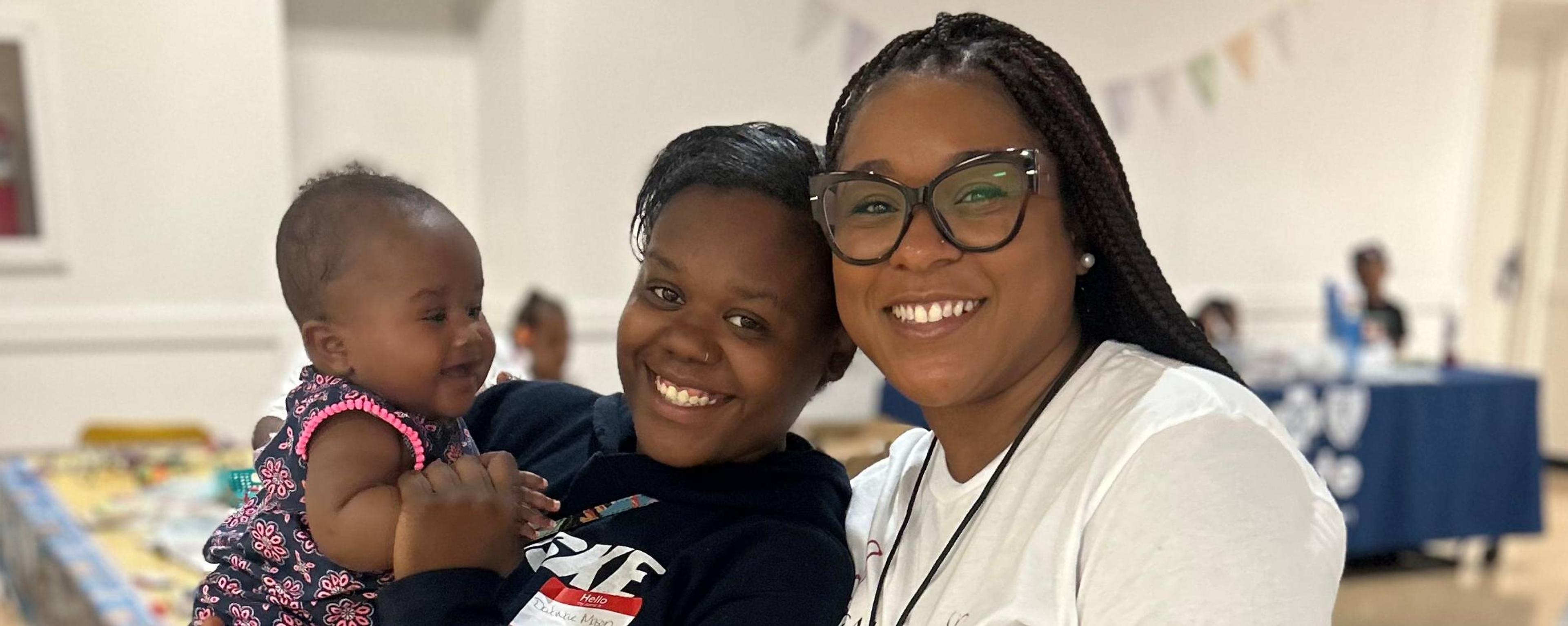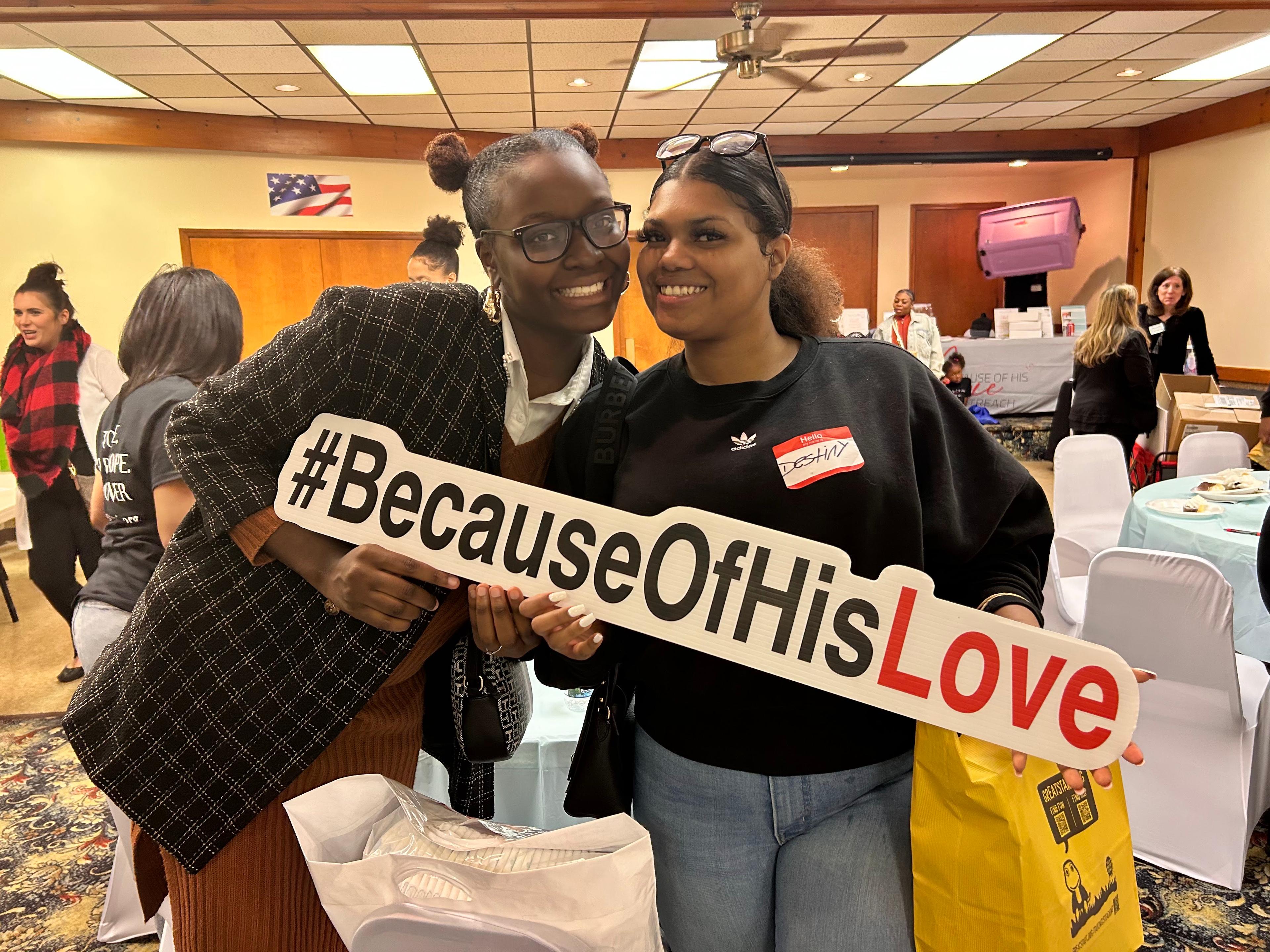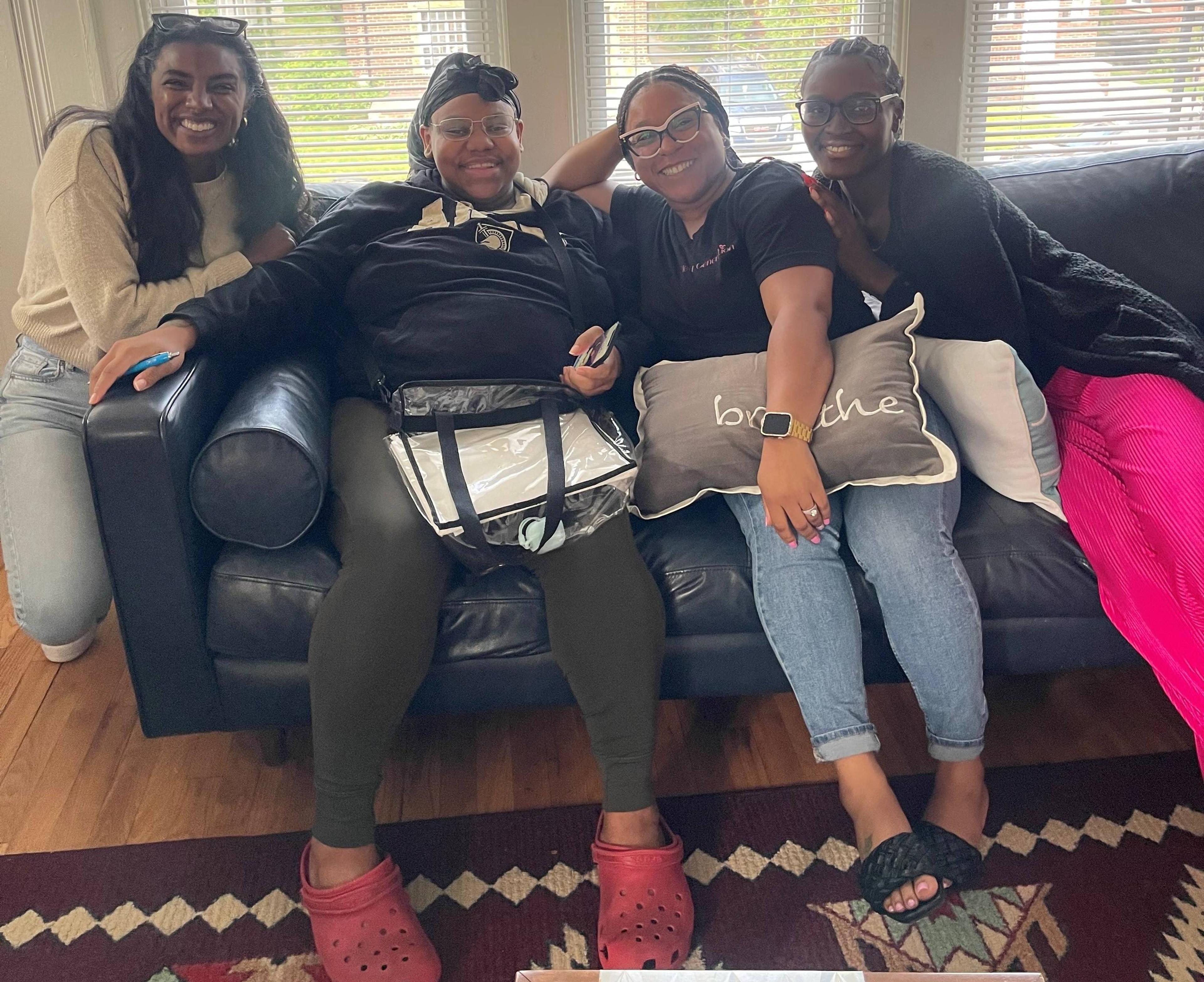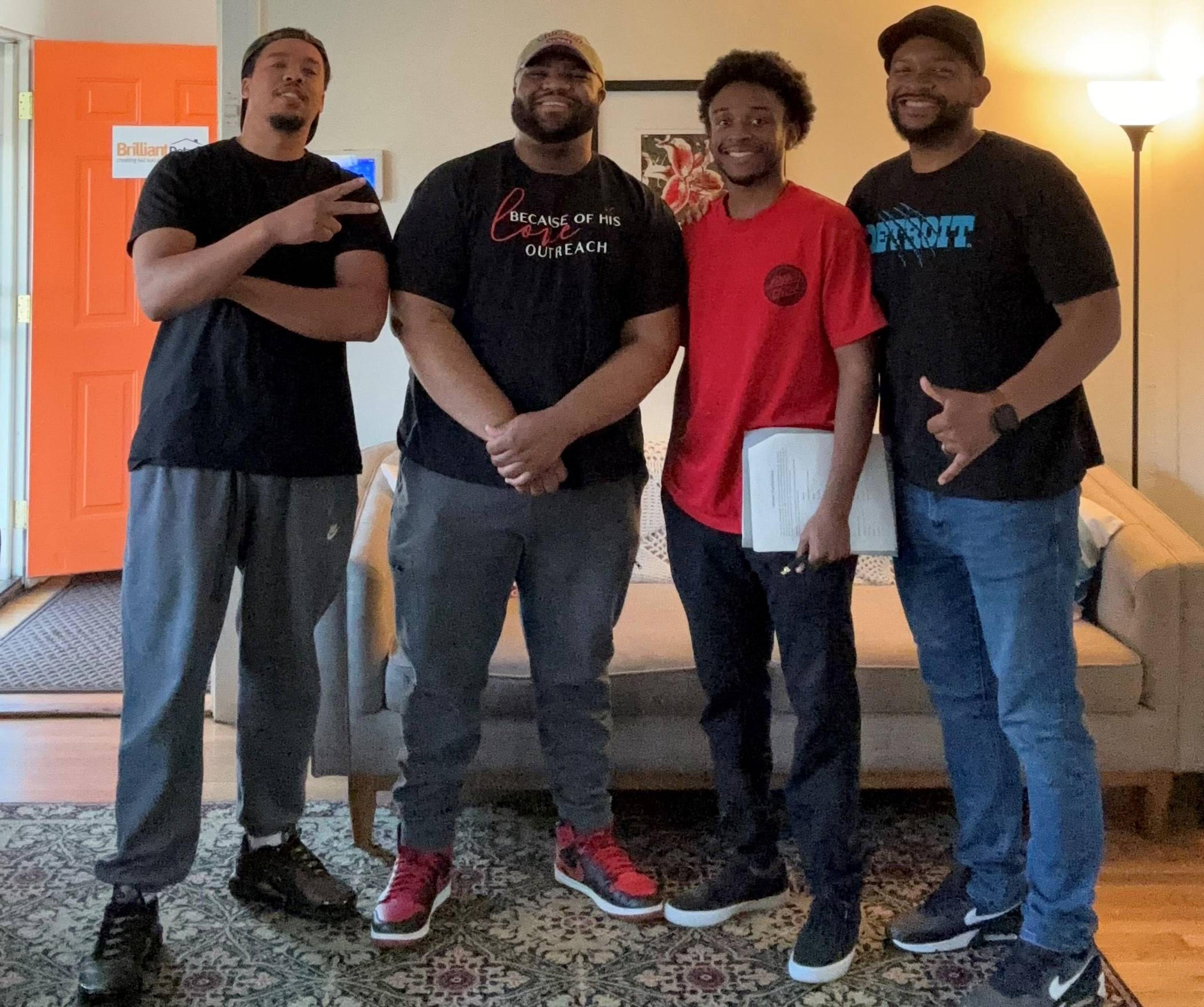Because of His Love Outreach’s Maternal and Paternal Support Groups Equip Detroit-Area Parents, Couples with Crucial Mental Health Tools and Tips

Jake Newby
| 5 min read
Jake Newby is a brand journalist for Blue Cross Blue...

In October of 2023, Detroit’s Brian Lee was involved in a car accident. His family was in the vehicle with him. Lee himself injured his shoulder, and while no one else in the vehicle was harmed, he had a difficult time processing the trauma and emotion of the moment.
“It was the first time in my life I ever experienced something so close to home with my children and my wife,” Lee said. “So, when I heard about some of the topics (the paternal health groups) might be talking about beforehand, it made me interested in joining.”
Maternal and paternal mental health support groups launched by Because of His Love Outreach (BOHL) have helped Detroit-area residents like Lee work through the hardships and empower parents to be their best selves. The joy and fulfilment that comes with raising a family is immense, but sometimes so is the stress. Managing finances, parenting and maintaining healthy relationships can be mentally and emotionally taxing. Knowing this, BOHL Outreach went into 2024 with a mission to enhance its mental health resources to help as many families as possible, with the support of Blue Cross Blue Shield of Michigan (BCBSM) funding to do so.

BOHL has a long history of providing culturally competent home visiting services to families in Wayne, Oakland and Macomb counties, through their Next Generation Maternal Infant Health Program. These families receive essential baby items and are connected with community resources. This year BOHL wanted to add to this list of services, especially after discovering a desire for more mental health services.
“We talked to families that told us they were struggling with mental health,” said BOHL Executive Director Lesley Gant. “Not necessarily a diagnosis related to mental health, but the stressors that come with having a family, the stressors that come with having a newborn, and multiple children in the home. And finances and things like that. And though we were able to do these monthly visits, we knew a lot more was needed.”
BOHL was awarded $50,000 in 2023 by BCBSM and the BCBSM Foundation as part of the Advancing Maternal Health Equity Initiative. These funds immediately helped the nonprofit develop maternal and paternal mental health support groups.

BOHL guided one cohort of men and women, separately, through its 12-week programming in early 2024, holding biweekly sessions that empowered participants to take the tips and guidance they learned during the sessions and practice them at home. Hour-and-a-half sessions were separate for men and women. Each session discussed topics like:
- Anger
- Goal planning
- Monitoring mood
- Trauma
“It was tailored to the needs of those who expressed wanting more,” Gant said.
BOHL’s paternal health support group equipped Lee with the mental tools needed to be better at home
For Lee, the breathing techniques he learned during one of the BOHL paternal support group sessions helped him cope with his anxiety. He took those techniques home with him to use in the face of real-life stressors.
“Taking a deep breath in the moment of things,” he said. “We talked about that. Because I dealt with anxiety a lot after the accident, just driving and things like that. I was short-tempered, more so than I would have liked to be. Those things right there were key things that made me say, ‘This is an important thing for me. I need to be a part of it.’”
Lee said the sessions have enlightened him in that he’s learned a lot more about himself since participating in the 12-week program.

“I was definitely one that took a lot home with me,” he said. “I have three children of my own. I’ve been married 10 years. Especially after sitting in the meetings and witnessing the testimonies of other men – and hear them talk about the things they’ve overcome and struggled with – it made me a lot more comfortable addressing my own (issues). I’d go home with more confidence knowing I wasn’t alone. That helped me out a lot, and I know it helped others, too.”
It's already taboo in some circles for men to receive mental health treatment or even discuss their mental health. For black men, like Lee, that stigma is magnified.
“It was real for me to think I didn’t need any type of help,” Lee said. “I was comfortable with where I was. Growing up, my father expressed to me that it was OK to express your feelings and things like that. But obviously, that wasn’t enough for me. I learned that sitting in the group, sitting and talking. I definitely thought beforehand that the sessions weren’t for me. I was hesitant to even take part in them. But afterwards, I was grateful they even existed.”
Feedback from husbands and fathers like Lee – as well as wives and mothers that attended the women’s sessions – has been positive, Gant said.
“Everyone, from all different demographics, have told me they learned a lot about themselves,” Gant said. “They said they learned how to navigate stressful moments in ways they never knew before.”
Many of the participants have already put a bug in Gant’s ear about informing them when the second cohort as part of the initiative starts next fall.
“Just to get as much good feedback as we got, and to see the demand and desire for it to be continued, it filled my heart with so much joy,” Gant added. “Because I am a mental health advocate as a licensed social worker, so any time it comes to mental health and empowering the community, that’s what I look forward to.”
More from MI Blues:
- Ypsilanti's New West Willow Neighborhood Association Launches Breakthrough Intergenerational Programs That Lead to Renovation of West Willow Park
- How Black Maternal Health Disparities Coincide with C-section Birth Complications
- Older Gay Adult Credits Detroit Hannan Center’s Inclusive Mental Health Services, Intergenerational Community Programs with Helping Him Through Personal Struggles
Photo credit: Lesley Gant/BOHL Outreach





